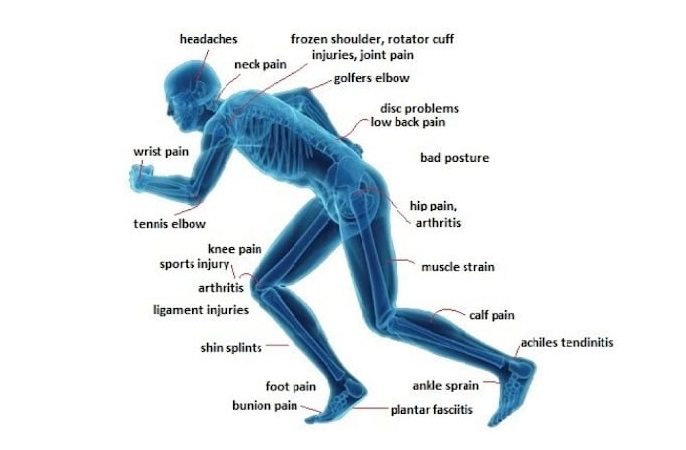3 Reasons TMJ Dysfunctionality in Edmonton Often Goes Unnoticed
Signs of TMJ Dysfunction in Edmonton and How to Manage It
TMJ Dysfunction in Edmonton
Temporomandibular joint (TMJ) dysfunctionality affects many people in Edmonton. This condition causes discomfort and difficulty in jaw movement. The TMJ connects the jawbone to the skull and plays a key role in talking and chewing. When issues arise, they can make daily tasks challenging. Recognizing the signs of TMJ Dysfunction in Edmonton and finding ways to manage them can help improve comfort and function.
Recognizing TMJ Dysfunction in Edmonton
The first step is identifying the symptoms. One common sign is persistent pain around the jaw joint. This pain can be mild or severe, especially when opening or closing the mouth. A clicking or popping sensation while moving the jaw may also indicate an issue. Occasional sounds are normal, but frequent or painful noises suggest dysfunctionality.

Some experience difficulty opening their mouth fully. A locking sensation in the jaw may also occur. If left unaddressed, movement restrictions can worsen. Pain may spread to the cheeks, temples, or ears. It often feels like earaches or headaches, making it hard to pinpoint the cause. Frequent headaches, especially in the temples or forehead, are linked to jaw misalignment. This can lead to ongoing migraines.
Tinnitus, dizziness, or ear fullness may also be signs of TMJ dysfunctionality. Jaw tension can impact nearby structures. Eating may become uncomfortable, especially with tough or chewy foods. Jaw muscles may tire easily, making chewing difficult. Some may feel their bite is off or that their teeth no longer fit together properly.
If you're experiencing these symptoms, it's important to consider consulting a professional for TMJ Dysfunction in Edmonton, as a timely diagnosis and treatment can help prevent further complications.
Causes of TMJ Dysfunctionality
Many factors contribute to TMJ Dysfunction in Edmonton. Trauma or impact to the jaw can disrupt normal function. Teeth grinding or clenching puts excessive pressure on the joint. Conditions like osteoarthritis or rheumatoid arthritis may weaken the joint. Uneven teeth alignment adds strain. Stress often leads to unconscious jaw clenching, worsening symptoms. Poor posture, especially in the neck and shoulders, also contributes to jaw tension.
In Edmonton, the rising cases of TMJ dysfunctionality can often be linked to a combination of these factors. Hormonal changes may also play a role. Women are more likely to experience TMJ dysfunctionality, possibly due to estrogen fluctuations affecting joint flexibility. Nutritional deficiencies, such as low magnesium or vitamin D levels, may impact muscle and joint health. Poor sleep habits can lead to nighttime jaw clenching, increasing strain on the TMJ. Chronic dehydration may reduce joint lubrication, leading to stiffness and discomfort.
Managing TMJ Dysfunction in Edmonton
There are several ways to manage TMJ dysfunctionality. Options range from lifestyle changes to professional treatments, depending on severity.
Self-care strategies can help. Avoid hard and chewy foods. Opt for softer choices like soups, mashed potatoes, and yogurt. Gentle jaw exercises improve flexibility and reduce stiffness. Ice packs can reduce swelling, while warm compresses ease muscle tension. Stress management, such as meditation and breathing exercises, helps minimize jaw clenching. Maintaining proper posture reduces unnecessary strain.
For those experiencing TMJ Dysfunction in Edmonton, professional care options include physical therapy. A trained therapist can guide exercises to strengthen jaw muscles and enhance mobility. Dental treatments, such as orthodontics, bite adjustments, or oral appliances, may relieve joint strain. Chiropractic and massage therapy can help with muscle tightness and jaw function. In severe cases, medical assessments or advanced treatments may be necessary. Some individuals find relief through myofascial release techniques or acupuncture.
Medications such as muscle relaxants or anti-inflammatory drugs may help reduce tension and discomfort. Platelet-rich plasma (PRP) therapy is emerging as a potential treatment, aiming to improve tissue healing. Some people benefit from cognitive behavioral therapy (CBT) to address stress-related clenching. Sleep studies may help identify nighttime grinding, allowing for targeted interventions.
Daily Habits to Support TMJ Health
Good daily habits can make a difference. Take smaller bites and chew slowly to avoid jaw strain. Limit gum chewing and nail-biting to reduce tension. Practice relaxation techniques by placing the tongue on the roof of the mouth while keeping the teeth slightly apart.
Workplace and home ergonomics also matter. Use a chair with good back support. Keep computer screens at eye level to encourage better posture. Sleeping on the back with a supportive pillow keeps the jaw in a neutral position and prevents pressure on the joint.
Hydration is key for joint health. Drinking enough water helps maintain joint lubrication, reducing stiffness. A balanced diet rich in omega-3 fatty acids, calcium, and magnesium supports muscle and bone health. Avoiding excessive caffeine and alcohol may help prevent muscle tension.
For those experiencing discomfort in the jaw area, such as in cases of TMJ Dysfunction in Edmonton, practicing mindfulness techniques can help reduce stress and jaw tension. Simple breathing exercises or guided meditation can relax facial muscles. Jaw massages before bedtime may reduce clenching during sleep.
Seeking Support in Edmonton
Edmonton has many healthcare providers specializing in TMJ dysfunctionality. A consultation with a professional can help determine the right treatment for TMJ dysfunction in Edmonton. Whether through lifestyle changes or medical care, addressing TMJ issues early can improve well-being. Many physiotherapy and dental clinics offer treatments to improve jaw function and ease discomfort.
Those experiencing ongoing jaw pain should explore their options and seek the right care for TMJ dysfunction in Edmonton. Taking action can improve jaw movement, reduce discomfort, and lower the risk of complications. Support groups and online forums may provide additional insights. Speaking with others who experience TMJ dysfunctionality can offer emotional support and practical advice. Regular check-ups with healthcare providers can help track progress and make necessary adjustments to treatment plans.
By incorporating simple changes and seeking professional help when needed, individuals in Edmonton can manage TMJ dysfunctionality effectively. Proper care and awareness can lead to better jaw function and a more comfortable life.









